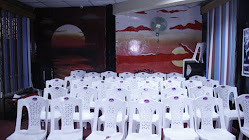Kenya becomes a domicile for acts of terrorism
Why would one need to
talk about Radicalization in Kenya today?
When did our great
country started to suffer from insecurity resulting from terrorism threats?
Since October, 14, 2011
when our country deployed security troops to Somalia in pursuit of Al-shabaab,
the citizens of this great nation have not had peace. It is now to the
attention of the Kenyan Government together with other stakeholders and the
civil society organizations to start talking about radicalization that has
become today’s most intruding domestic threat to the security of our citizens.
We as citizens, we may start questioning who is involved in
radicalization and why but that would not have any meaning if we cannot
collaborate with other stakeholders and
put the necessary security interventions to curb the alarming rate of terrorism
in the country.
Kenya has been the
victim of sporadic terrorist attack especially in the recent years not by design
but because of Al-shabaab insurgency in the neighboring Somalia. The recent
escalation of terrorist attack is believed to be a direct result of a
formidable and secretive support network activities facilitated by the Al-shabaab
since 2007 up to date especially in Mandera, Carissa and Eastleigh communities.
The emergency of the
ICU and the Al-shabaab in 2006 also contributed to radicalization in Kenya that
later on in 2011 resulted in Kenya’s suffering from frequent small-scale
terrorist attack related to developments in Somalia.
Kenyan youths looks
very attractive in terms of the potential that can be absorbed into the current
market to grow our economy but
unfortunately, another group of terrorist is taking advantage of their economic
constraints to recruit them into radical groups in the name of gifts and
financial gains to help them accomplish their selfish political ambitions.
According to US Agency
for International Development (USAID), an estimated 75 percent of out-of-school
Youths are unemployed, which means that the rate of Youth unemployment in the
country is extremely high. Would this be the cause of alarming rates of
radicalization and other terrorism activities in the country?
When we look at the
nature of our country, our citizens are divided based on ethnic and religious
backgrounds. Would this influence access to resources among our citizens?What
does this mean to the security of our citizens?
“When access to
resources is based on ethnic, cultural or religious characteristics, economic
conditions further contributes to instability making countries confronted by
these factors more vulnerable to acts of terrorism” a report by Institute for
security studies in Africa.
This means the
government of Kenya and other development partners and Agencies must take
proactive measures to provide solutions to high rates of youth unemployment
across the country as one of the key interventions to curb acts of terrorism
and manage security matters in the country.
Easttleighwood is one
of the civil society organizations which promote peace and youth
empowerment initiatives through video and film production programs, community
outreach and digital media engagement. As an organization, we are working
around the globe to tap and promote skills and knowledge that our youths especially
out-of-school youths as a strategy to empower them economically.
We also stand firm to
educate our youths on the consequences of engaging themselves in acts of crime
and terrorism that impacts negatively on their lives.
Subscribe to:
Post Comments
(
Atom
)


















No comments :
Post a Comment